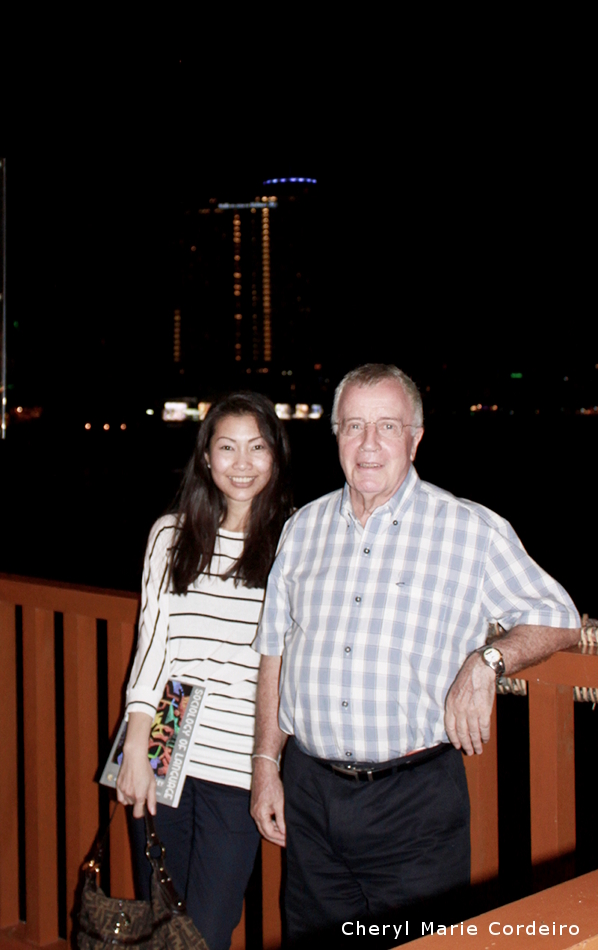Cheryl Cordeiro and Professor Joe A. Foley, standing at the bank of the Chao Phraya River, Shangri-La, Bangkok, Thailand.
Text & Photo © JE Nilsson, CM Cordeiro 2013
It had been quite some years, since 2007 thereabouts, that I last visited Bangkok. The early morning drive through the city from the airport lent an immediate update of impression of just how much and how fast the landscape was changing that left me wondering if I could, with some effort, find my favourite street hawkers at the places where I once knew where they stood.
I have thus far remembered my visits to Bangkok fondly, often in the sense that I’ve managed to acquire a curiosity of items that range from floor mats, cushions to kitchen utensils and a spattering of orphaned treasures.
While the city is ever modernising, I was happy to find, what to me was its signature rhythm of a heartbeat – its wet and soggy market streets – still around the corner from where I stayed.
More than street marketing this time around was the fact that I had the pleasant opportunity to meet again with a mentor, Professor Joseph A. Foley. Joe was previously my thesis writing supervisor through all my theses, beginning with my honours and master thesis writing back at the National University of Singapore, through to my doctoral thesis writing at the University of Gothenburg. He currently lectures at the Graduate School of English at the Assumption University in Bangkok, Thailand.
We met alongside the Chao Phraya River for dinner.
The Chao Phraya River
“The Chao Phraya is overrated”, I was curtly told by a girlfriend when she heard where I had wanted to stay when in Bangkok.
As much as I find home in the city’s meandering streets, I couldn’t help but want to be by the river side, away from the madding crowd. And upon arrival, I couldn’t help but sit and soak in the sights and sounds of that same muddy river that reflects life in its arteries of streets beyond its banks.
“You know it floods here during the rains.”
“It does?”
“Oh yes it does. All the way up here inland. Terrible.”
“Well, it’s a glorious river, isn’t it?”
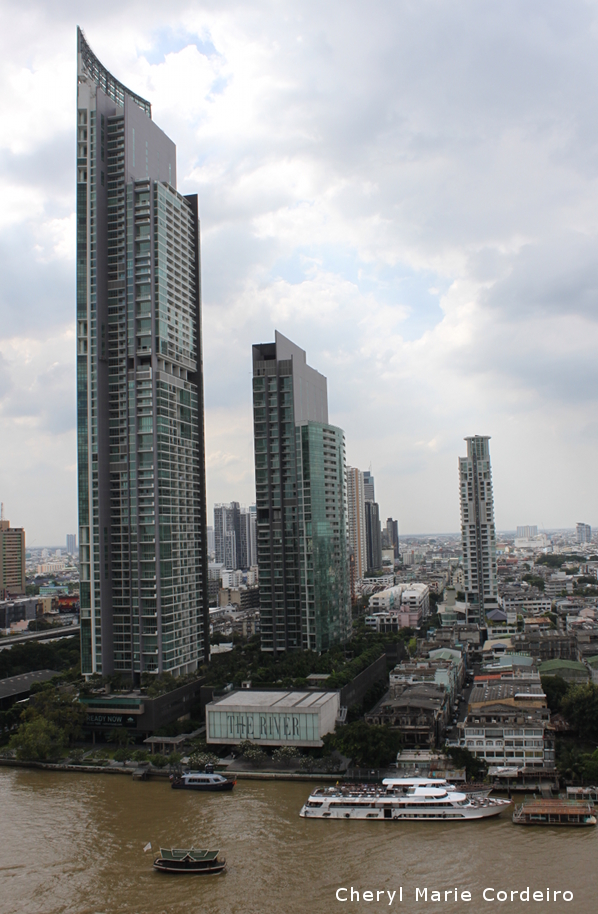
Looking left from the balcony. View of the Chao Phraya River.
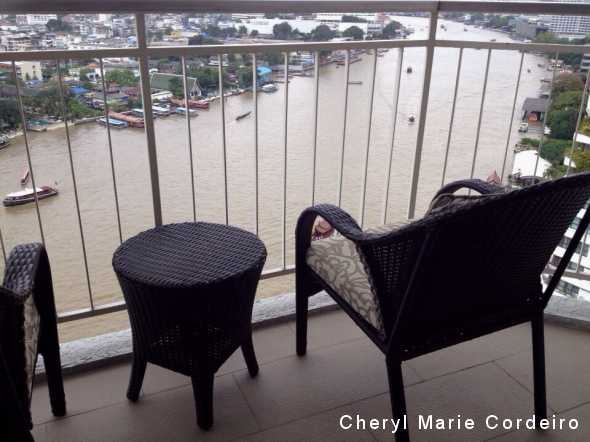
From the balcony on the 19th floor, looking across the river.
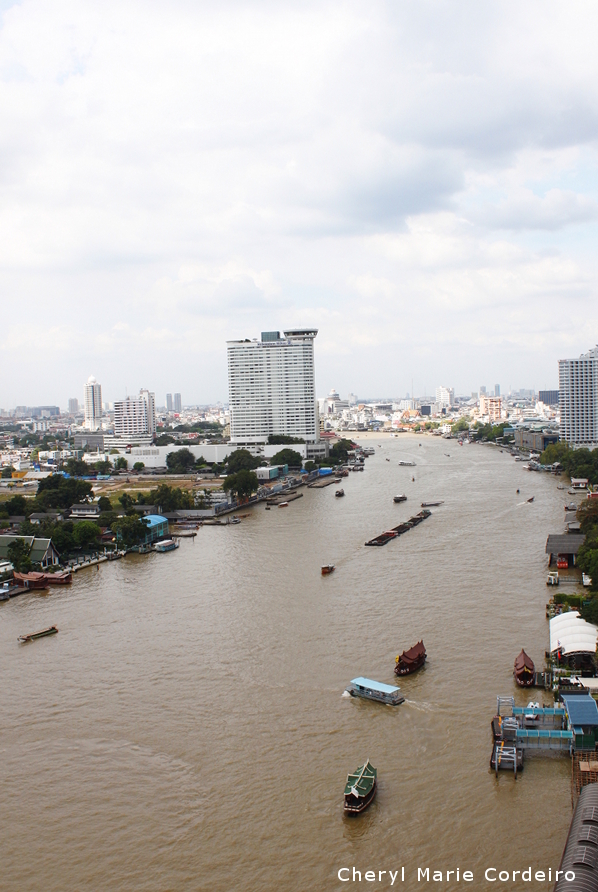
Looking right from the balcony. View of the Chao Phraya River.
Culinary cuisine in themes – a dinner and a book
Dinner was a buffé presented in culinary themes that ran from Thai to Indian, Chinese, Japanese and general continental European.
After dinner, I was gifted with a book by Joe. It was his latest publication, and I was more than thrilled to have had it signed by the author himself.
The book is entitled Sociology of Language, written as a course book for students in graduate English studies. The context is set in English language studies in East and Southeast Asia, where the English language is often second or third language acquisition for many students here. Presented also in themes in twelve chapters, it gathers ideas and works from various prominent academics in the fields of English language studies and Sociolinguistics, helping us to better understand the often subtle ways in which language use affects, and is in turn affected by, the social environment. The ideas presented transcend the dominant understanding that language is used for purely transactional purposes, to encompass the broader aspects of language as a living, transforming entity in its social context.
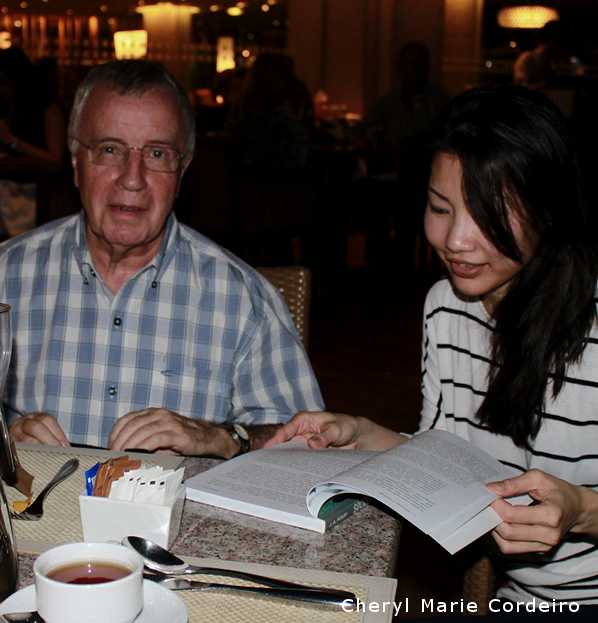
After dinner activity and conversation included Joe presenting his new book entitled “Sociology of Language”, whose themes revolved broadly around the ‘social life of language’.
Most social contexts today in Southeast-Asia reflect the growing multiculturalism of each country due to the increasing movement of people and labour between borders, where it seems you can find a little bit of Asia in almost every country you visit in the region. This multicultural trait as such was also found in the culinary spread for the evening, though what is unique still remains that the part of Asia presented in each country, continues to be flavoured locally.

Sociology of Language by J.A. Foley, 2013. Assumption University Press, Thailand.
In that context, I thought it surreal to have been given this book that covers language, thought and culture and the nature vs. nurture debate set in a multicultural context that highlighted works from Benjamin Lee Whorf to Noam Chomsky. This, I found insightful and useful since I am myself, re-visiting some of Whorf’s earlier writings from the early 1900s, reading his works through the lens of systems theory. My favourite insight thus far from Foley (2013:19) is:
“Indeed in the field of language, culture’s incursions into the land of concepts has so often seemed to go against common sense that for at least the last 100 or more years the proponents of nature and of culture have been in conflict, particularly in the discussion about colours. This topic might at first seem peripheral to our understanding of the use of language in society but the ramifications are profound. Its importance can be seen in the fact that Benjamin Lee Whorf managed to persuade a whole generation of linguists that American Indian languages had a different conception of reality from ours (Deutscher 2011)”
With focus on, “managed to”.
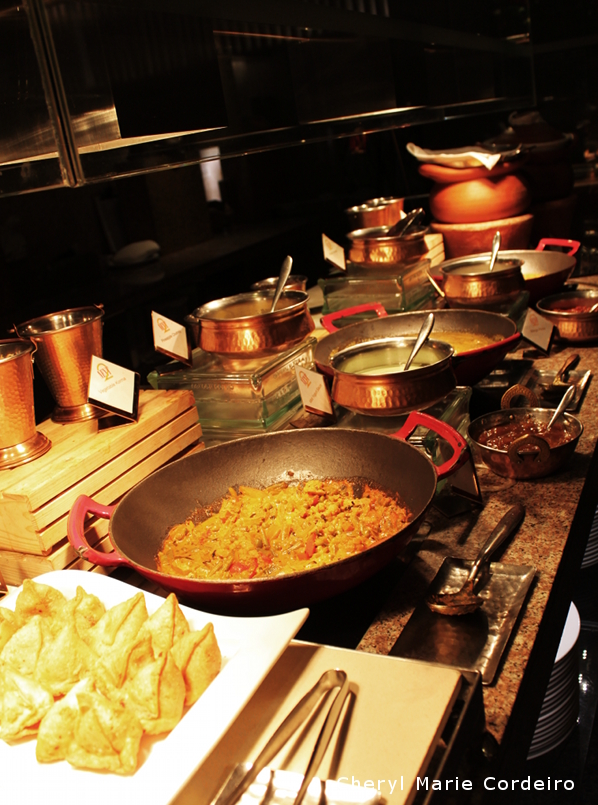
The buffé was oriented in culinary themes, this section contained Indian cuisine.
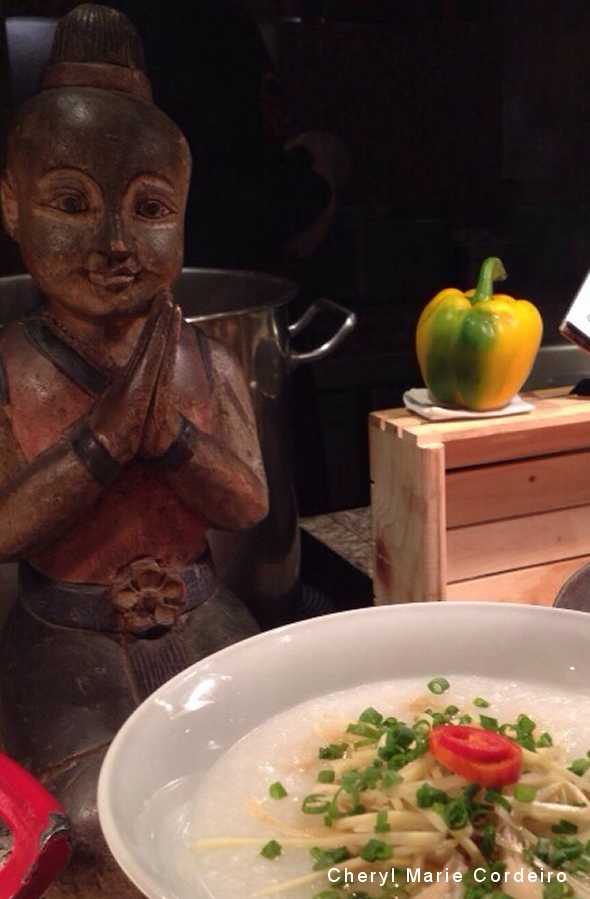
Chinese porridge with a touch of Thai.
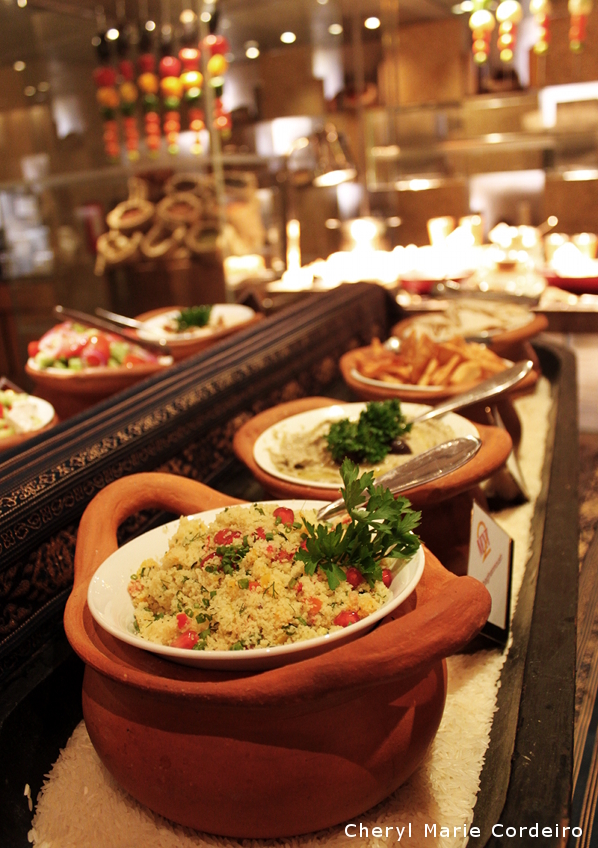
Claypot dishes.
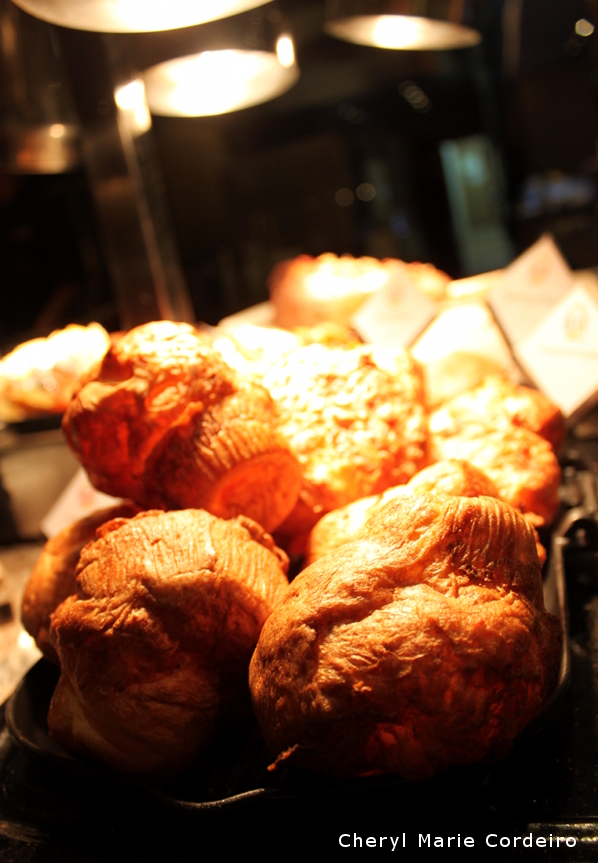
Yorkshire pudding.
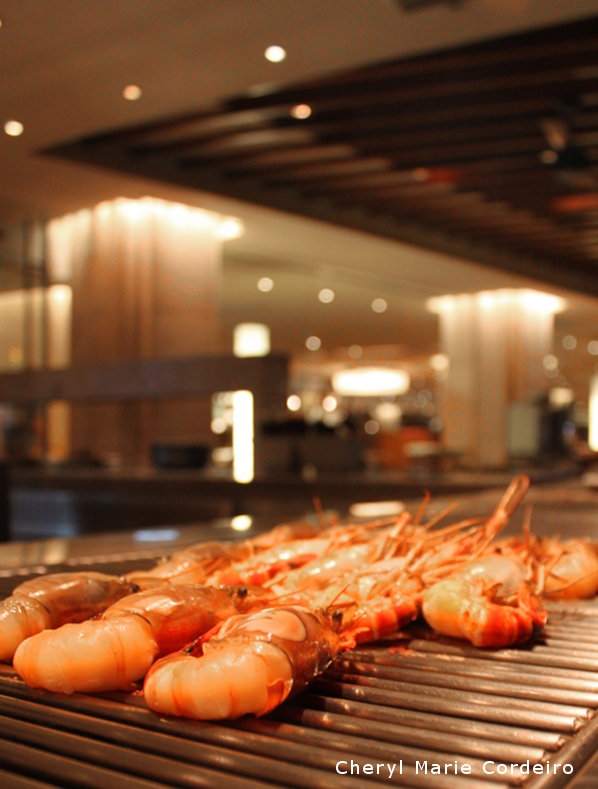
Pride and joy of the evening’s Chef de Cuisine – large Thai bred prawns.
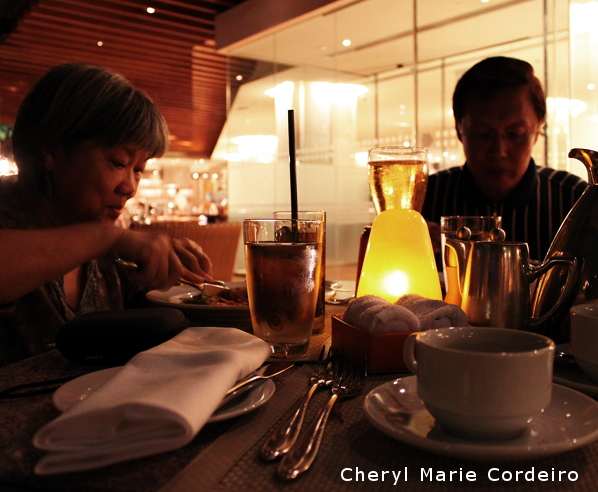
In good company, dinner.
It was in general continental European style of cheese and coffee that rounded off the dinner that began with local Thai fare, the interesting culinary adventure reflected somewhat in parallel in the span of thoughts that ran through Sociology of Language.
Almost directly across from where we sat for dinner, The Peninsula winked its warm dusky lights in our direction, reminding me of yet another splendid moment some years ago next to this rich, muddy-watered river.
The Chao Phraya River, with all its evening activities of bumboats ferrying students back home from school to visitors going up and down to its various attractions, could not have proved a more perfect setting and place to be for an exchange of ideas, thoughts and snippets of aspects of living.
Thank you, Joe, for the book, and a most pleasant evening!
